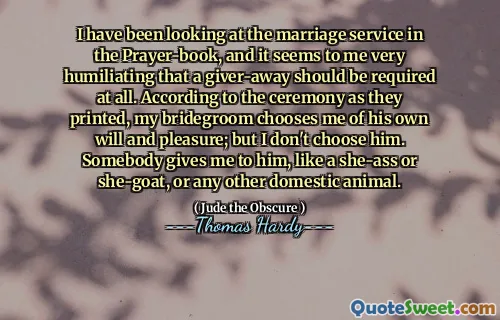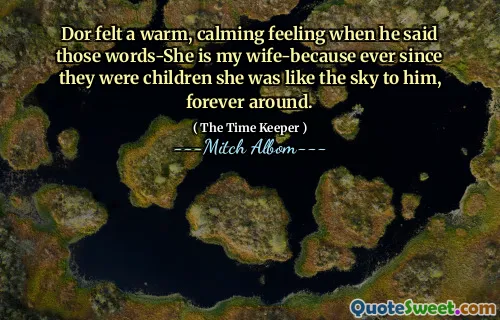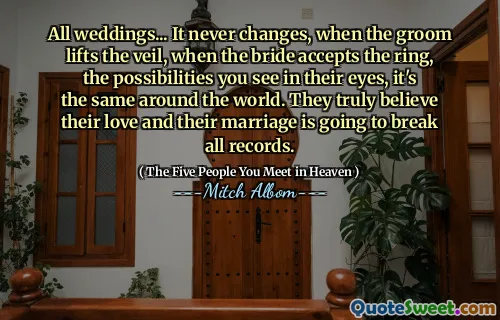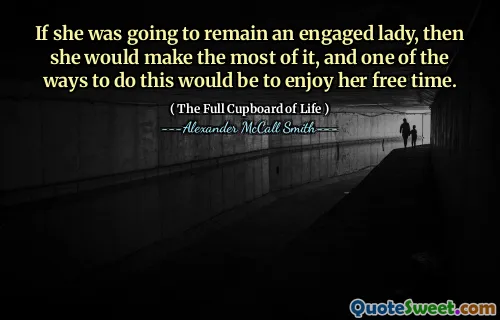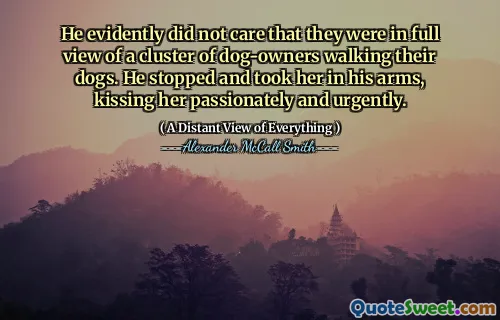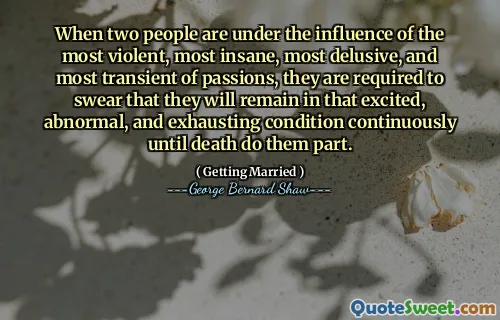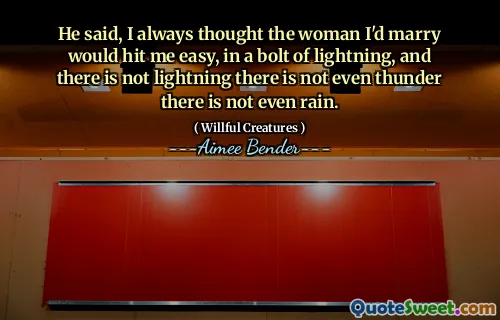
I have been looking at the marriage service in the Prayer-book, and it seems to me very humiliating that a giver-away should be required at all. According to the ceremony as they printed, my bridegroom chooses me of his own will and pleasure; but I don't choose him. Somebody gives me to him, like a she-ass or she-goat, or any other domestic animal.
This passage critically examines traditional marriage rituals, highlighting the profound imbalance of power and agency that the ceremony embodies. The speaker perceives the formal act of being 'given away' as demeaning, equating it to the treatment of property or livestock. Such a perspective invites reflection on the historical context of marriage as a transaction whereby the bride's autonomy is minimized, and her role is reduced to passivity. In contemporary society, shifts towards recognizing personal choice and mutual consent have transformed marriage into a partnership rooted in equality rather than ownership. The analogy used—comparing being handed over like domestic animals—gains startling clarity here, serving as a stark critique of a practice that might seem outdated or ingrained without moral reflection. It prompts us to consider how rituals shape societal perceptions—are they merely ceremonial, or do they reflect broader values? The impatience with the ritual exposes a desire for genuine connection and mutual respect, emphasizing that true marriage should be founded on the willing agreement of both parties, rather than societal expectations or customs that diminish individual agency. This quote challenges readers to question long-standing traditions and consider the importance of respecting personal choice and dignity within intimate relationships. It also underscores how institutions and rituals can evolve with society's morals, reflecting the importance of continuously re-evaluating practices to ensure they align with contemporary values of equality and respect.
